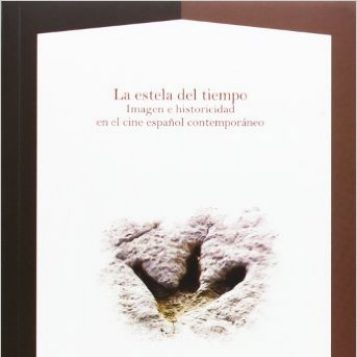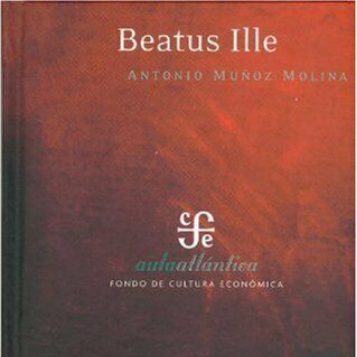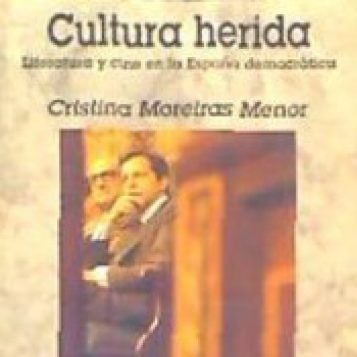Kathleen M. Canning Collegiate Professor of Spanish and Women’s and Gender Studies
She, Hers, Her
About
Before coming to the University of Michigan in 2002, Professor Cristina Moreiras-Menor was Assistant Professor and Associate Professor of Spanish at Yale University (1996-2002).
She is an internationally renowned interdisciplinary scholar of nineteenth to twenty-first century Iberian Studies, with special emphasis in literature, film, the critical traditions of feminism and psychoanalysis, and Galician Studies. Professor Moreiras-Menor’s publications explore three distinct yet profoundly interrelated areas of modern/postmodern Spanish cultural history: (1) the origins, aesthetics and politics of the Spanish civil war; (2) culture and state formation during the Franco regime and their relation to contemporary cultural and institutional configurations; (3) the longstanding relation between the ideological construction of national culture (from the nineteenth century to the present) in relation to the claims, realities and aesthetics of regional, marginal or peripheral nations on the Iberian Peninsula. Professor Moreiras-Menor’s intellectual trajectory challenges the “current affairs” trivialization of the Spanish transition to democracy that has emerged in Spain and in Iberian Studies in the wake of the so-called “15-M” anti-austerity movement in 2011. Rather than casting the transition to democracy into oblivion in the name of contemporary politics, Professor Moreiras-Menor’s publication trajectory suggests that the cultural complexities of the transition period allow scholars to account for the regional and national conditions of the present.
Moreiras-Menor’s first book, Cultura herida: Literatura y cine en la España democrática (Ediciones Libertarias, Madrid, 2002) was one of the very first books in the field of Iberian Studies to bring literature, film and critical theory to bear on each other in the examination of modern and contemporary cultural and political history, implementing the paradigm of “cultural critique” in order to examine the development of Spanish democracy as a regime of filmic and literary representation, and therefore as a particular process of historical and political metaphorization, after the death of the dictator General Francisco Franco in November 1975.
Moreiras-Menor’s second book was published in 2011 by Editorial Iberoamericana/Vervuert (Madrid). Titled La estela del tiempo: Imagen e historicidad en el cine español contemporáneo, this book proposes a reflection on the representation of historicity (that is, the traces and images of history in contemporary Spanish cinema) from presuppositions other than those available to historiography. Drawing on a selection of filmmakers spanning from the final years of the Franco dictatorship (the early to mid 1970s) to the present, this book offers an extensive reflection on Luis Buñuel’s The Discreet Charm of the Bourgeoisie, The Phantom of Liberty, and That Obscure Object of Desire, Jaime Chávarri’s Disenchantment, Ricardo Franco’s After All These Years, Mario Camus’ The Holy Innocents, Alex de la Iglesia’s Common Wealth and, finally, Mercedes Álvarez’ documentary The Sky Turns. La estela del tiempo accounts for the ways in which cinema takes on representing time (the index of history, the record of social events, and the constitution of modernizing processes in Spain throughout the twentieth century) from a broader, more dynamic vantage point. In the films analyzed in this work, the past operates as one of numerous vertices through which memory (understood as official national history but also as cultural, popular or regional memory) acquires meaning and, more importantly, transforms the relation between historical moments. As a result, one of the book’s objectives is to make the present emerge as the moment of historical experience capable of restoring value to the past (after all, it is from the present, as Walter Benjamin observes, that the past is experienced). Professor Moreiras-Menor is also the critical editor (prologue, notes and bibliography) of Antonio Muñoz-Molina’s acclaimed novel Beatus Ille, published in Mexico City by Fondo de Cultura Económica in 2007.
Since coming to the University of Michigan, Professor Moreiras-Menor has directed more than twenty-five Ph.D. dissertations in her chosen field, and in 2014 was the recipient of the John D’Arms Faculty Award for Distinguished Graduate Mentoring in the Humanities. She has also served in the Department of Romance Languages & Literatures as Associate Chair (2003-2005), Graduate Chair (2005-2007), Acting Chair (2007-2008) and Department Chair (2010-2018).
Graduate Courses taught:
Narratives of Trauma
Psychoanalysis and Image
Spanish Film and the Question of Temporality
State Reason: Fascism and ‘Francoist’ Culture
Narratives of Transition: The Politics of Memory in Democratic Spain
Peninsular Nationalisms: Culture and Nation from the Margins
The Question of War: Culture and Violence in Modern Spain
History, Culture and Psychoanalysis: Spain from 1898 to 1992
Contemporary Spanish Film: Culture, History, Politics
The Cinema of Luis Buñuel
Undergraduate Courses taught:
Culture, Violence and Modernity in Twentieth Century Spain
Culture and the ‘Franquista’ State
Shadows of a Dictatorship: Memory and Literature in Democratic Spain
Spanish Women Writers
Spanish and Latin American Women Writers
Literatures and Cultures of the Borderlands: Spain from the Margins
Peninsular Nationalisms
Topics in Catalan Studies
The Question of Immigration
Culture and Immigration




